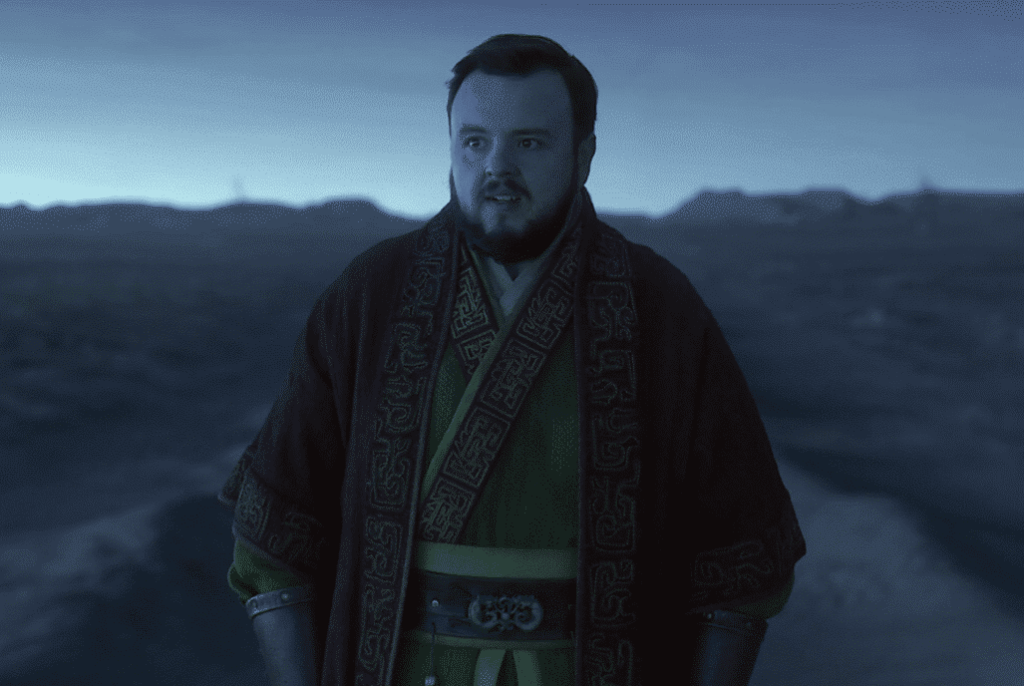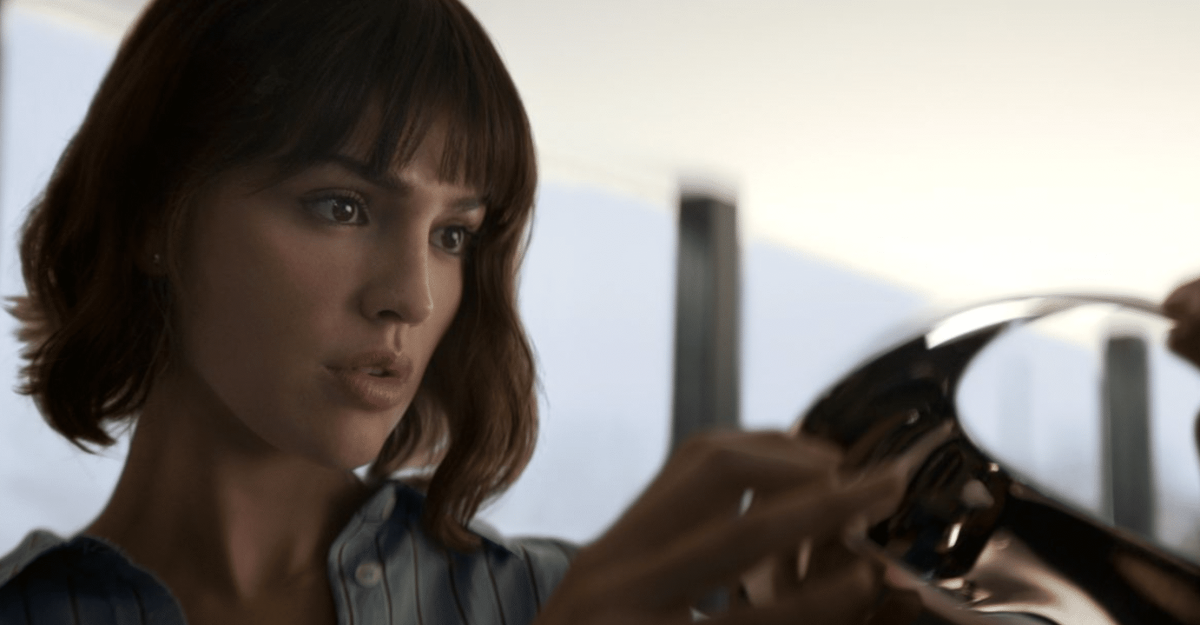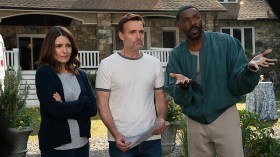Game of Thrones creators David Benioff and DB Weiss squandered a lot of public goodwill in the way they ended their era-defining show. So, talk of Netflix’s new eight-episode drama 3 Body Problem has focused on whether Benioff and Weiss could successfully adapt a sprawling, cerebral novel by Chinese sci-fi author Liu Cixin, which explores a hostile invasion of Earth from an alien planet tossed between three suns.
It’s not as if The Three-Body Problem had never been filmed; last year it was very faithfully dramatised as a 30-episode Chinese series. But ‘unfilmable’ is often industry shorthand for a dizzyingly vast storyworld that is dense with esoteric scientific, cultural, historical and philosophical concerns.
People also doubted the filmability of Frank Herbert’s Dune and Isaac Asimov’s Foundation, which both went on to succeed on big and small screens. Like those adaptations, 3 Body Problem won’t be for everyone – but it’s an elegant solution.
Who’s watching?
The show’s key motif is the eye. ‘When we see a pair of eyes, it means the object can see us, and this means the eyes have become a symbol of the sentient Other,’ author Liu Cixin said in a 2020 interview.
Benioff, Weiss and their collaborating showrunner Alexander Woo (True Blood; The Terror: Infamy) link diverse themes of watching and being watched: science’s observational methodologies; religious belief in an omniscient sky deity; investigative surveillance; and the revolutionary paranoia of China’s Cultural Revolution.
Read: 3 Body Problem – need to know
3 Body Problem eases viewers in with a recognisable scene of historical drama. At a public struggle session, teenage Red Guards beat to death their own teacher, physicist Ye Zhetai (Perry Yung). Game of Thrones fans will instantly recognise this spectacle of state violence – especially the way Ye’s daughter, Ye Wenjie (Zine Tseng), watches in agony from the crowd.
Condemned by family association, Wenjie is later labouring at an environmentally devastating land-clearing project in Inner Mongolia when visiting journalist Bai Mulin (Yang Hewen) lends her a subversive book: Rachel Carson’s landmark conservation polemic Silent Spring.
One of Carson’s observations – which Wenjie later quotes to Mike Evans (Ben Schnetzer), a wealthy yet militant American activist – comes to symbolise this entire series’s concerns: ‘In nature, nothing exists alone.’
After Wenjie is recruited to Red Coast, an army base whose secret purpose is extraterrestrial communication, she fatefully figures out how to make first contact. To her brilliant but traumatised and disillusioned mind, no alien civilisation could possibly be worse for the Earth than humankind already is …
The ‘Oxford Five’
In the present day, the world’s top scientists are killing themselves after their experiments fail and a countdown inescapably burns into their field of vision. ‘Physics doesn’t exist anymore,’ broods Saul Durand (Jovan Adepo) from the about-to-be-decommissioned Oxford particle accelerator, moments before his beloved mentor Vera Ye (Vedette Lim) – Wenjie’s daughter – throws herself to her death.
If the show began as historical drama, it settles into procedural mystery as Clarence ‘Da’ Shi (Benedict Wong, delightfully using his own English accent) investigates these deaths on behalf of private spymaster Thomas Wade (Liam Cunningham, one of several Game of Thrones alums here).
An unconventional, dogged and intuitive detective, Shi is particularly interested in five of Vera’s former students: Saul; theoretical physicist Jin Cheng (New Zealand actor Jess Hong); nanotechnologist Auggie Salazar (Eiza González); science teacher Will Downing (Alex Sharp); and snack-food entrepreneur Jack Rooney (John Bradley).
Read: Netflix: new shows streaming March 2024
The ‘Oxford Five’ – a multicultural coterie of genius friends for viewers to follow – was one of this adaptation’s smartest inventions. Having read the novel trilogy, I can see how the showrunners are already seeding plotlines from Liu’s second and third books, while massaging the thinly drawn characters into people with relatable emotions and motivations.
Jin emerges as someone particularly close to Vera – and to Wenjie (now played by Rosalind Chao), who shows Jin an advanced headset for a virtual-reality game that Vera had obsessively played. And as Auggie begins to see the ominous countdown, Jin and Jack start playing the game.
Game of Bodies
The virtual-reality environment that gives the series its title is its second clever achievement. Within the story, and for the viewer too, it’s a visually intuitive way for the approaching aliens to introduce themselves – embodied as a cute child (Eve Ridley) to save, and a sword-holding gatekeeper (Sea Shimooka).
These uncanny gameplay sequences blend apocalyptic body horror, historical references to science and philosophy, and even humour – spot the familiar comic actors portraying other players and famous NPCs.
The eye motif appears again whenever a player dons the game headset: there’s always a ‘boot sequence’ where their two eyes merge into one. And through their embodied process of discovery, Jin and Jack are recruited to a secret organisation that welcomes and worships the aliens, who are here dubbed the San-Ti (in the novels’ English translation, they’re called Trisolarans).

3 Body Problem flings its Oxford Five into the space of uncertainty created by the San-Ti: they struggle to figure out an entity that evades all their usual methods of objective study, and that is as omnipresent and omniscient as a god. They’re caught between Thomas Wade and Da Shi on one side, and on the other, the San-Ti-worshipping Mike Evans (now played by Jonathan Pryce) and his sinister envoy Tatiana (Marlo Kelly).
This is an absorbing scientific mystery that rewards alert viewers. Its moments of levity offer a welcome break from the prevailing tone of grim existential awe – mostly courtesy of Wong’s and Bradley’s playful performances, but sometimes through Jin’s relatable dorkiness.
I also enjoyed its ominous thematic chimes. For instance, Da Shi observes of one scientist, found drowned in a bath, that Robert Oppenheimer’s girlfriend Jean Tatlock died the same way. ‘Some think she was murdered. Maybe she just knew the kind of misery the world was about to face.’
Outside is a statue of Kali, the Hindu mother-goddess who protects her people through acts of terrible destruction. Here I must mention one staggering sequence (familiar to readers of the book) that weaponises Auggie’s nanotechnology to devastating effect. It simply can’t be adequately described. It must be seen; like Game of Thrones, this show embraces the visual immediacy of violence.
3 Body Problem premieres on Netflix on 21 March.
Actors:
Benedict Wong, Jess Hong, Jovan Adepo, Eliza Gonzalez, John Bradley, Alex Sharp, Rosalind Chao, Zine Tseng, Jonathan Pryce, Ben Schnetzer, Liam Cunningham, Marlo Kelly, Sea Shimooka, Saamar Usmani, Eve Ridley
Director:
Derek Tsang
Format: TV Series
Country: USA
Release: 21 March 2024





